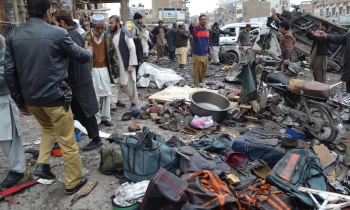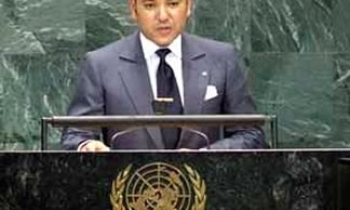The six-month jail term handed down to leading Egyptian editor Ibrahim Eissa has come in for worldwide condemnation.
The Boulak Abul Ela Court of Misdemeanor, on the outskirts of Cairo, sentenced Ibrahim Eissa, editor in chief of the independent daily Al-Dustour, to six months in prison for “publishing false information and rumors” about President Hosni Mubarak’s health. The court said the articles were likely to disturb public security and harm the country’s economy. Eissa was forced to post 200 Egyptian Pounds (US$37) as bail to halt implementation of the court ruling until appeal.
“By sentencing our colleague to prison, Egyptian authorities have once again shown their determination to clamp down on critics in the press through the pernicious use of the courts,” said Committee to Protect Journalists (CPJ) Executive Director Joel Simon. “The appeals court should throw out this politically motivated judgment.”
“The verdict is a strong message from the regime to warn every journalist against the danger of getting close to the president or criticizing him,” Ibrahim Mansour, executive editor of Al-Dustour, told CPJ. “This is mere schizophrenia. Because they keep claiming that they are committed to freedom of expression at a time when they are issuing court decisions to jail journalists.”
Eissa, who has been dogged for several years by criminal prosecutions, according to CPJ, was charged under the Penal Code in September with publishing reports about Mubarak’s health that were “liable to disturb public security and damage public interest.” The case was first hastily submitted to the Emergency State Security Court, an exceptional tribunal that does not allow for appeals and rarely issues acquittals. But it was examined later by a misdemeanor court following a local and international outcry.
Al-Dustour was neither the only nor the first Egyptian paper to speculate about Mubarak’s health. But Eissa’s critical and sarcastic articles, particularly one published at the end of August in which he said the president in Egypt “is a god and the gods don’t get sick,” prompted anger in official circles and was used later to prosecute him.
“The authorities are continuing the campaign of intimidation against independent journalists that began at the start of 2007,” Reporters sans Frontières (RSF) said. “Comments about the necessary limits on press freedom made by the judge the day after passing sentence are indicative of the judiciary’s general attitude towards the media.”
"This prosecution forms part of a wider pattern of the Egyptian authorities using criminal defamation and other charges to chill media expression and reporting on issues considered by the authorities as red lines, but which are, in reality, issues of clear public interest," said Amnesty International. "It underlines the need for the government to amend the controversial press law and all other provisions in the Penal Code that criminalise legitimate reporting.'
The press law adopted by the National Assembly in July 2006 added to existing restrictions on freedom of expression and journalists and others continue to be at risk of imprisonment if they commit publishing offences, such as insulting public officials. When the new law was introduced, independent and opposition newspapers withheld publication for a day in protest and hundreds of media workers protested outside the parliament building.
"We hope that the Court of Appeals, when it considers the case, will overturn this verdict and uphold the right to media freedom,' said Amnesty International. 'The authorities should cease using criminal defamation charges to harass journalists and prevent their reporting on matters of legitimate public interest.'









